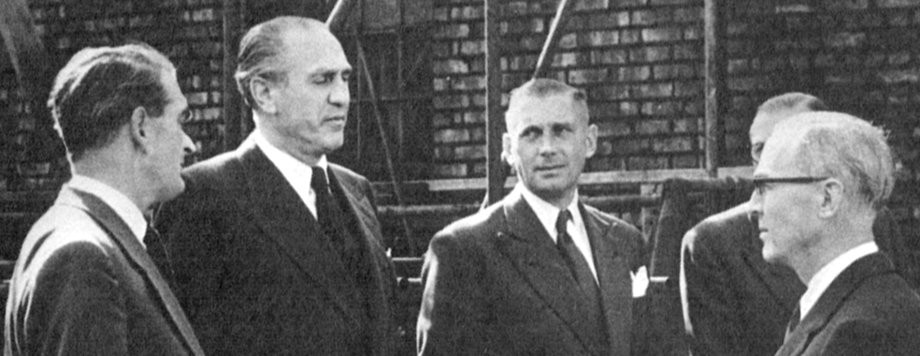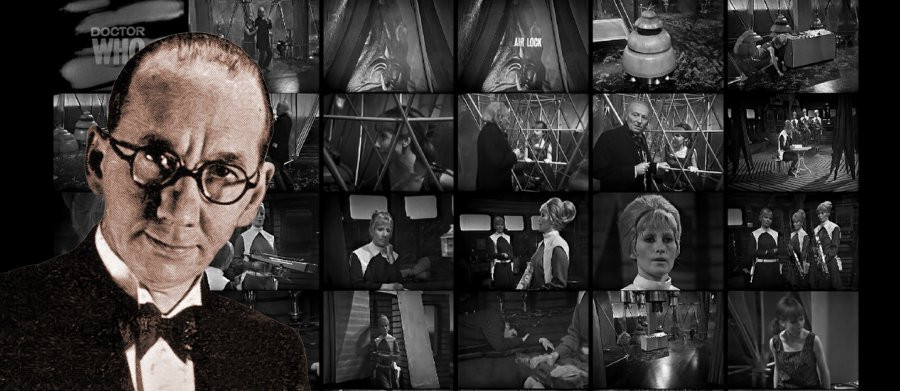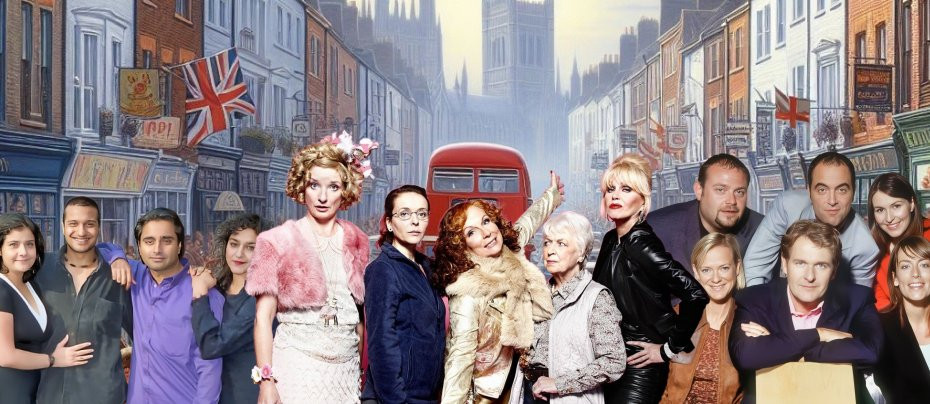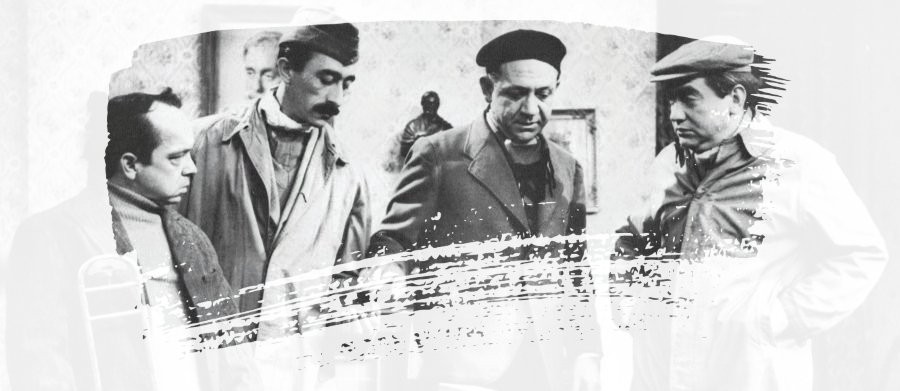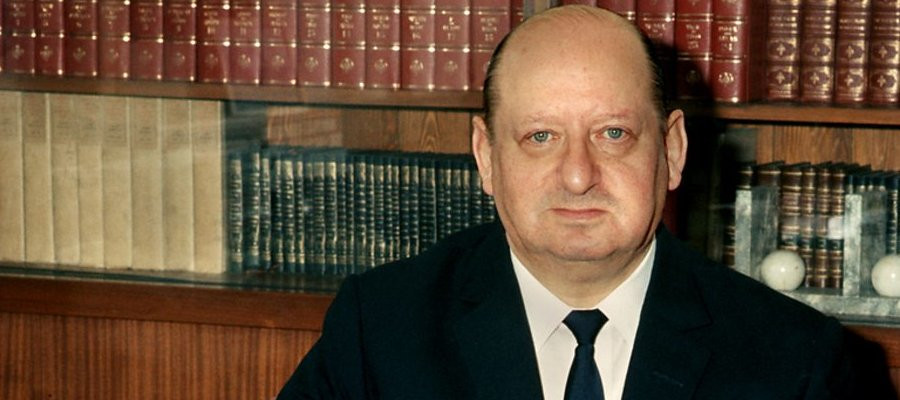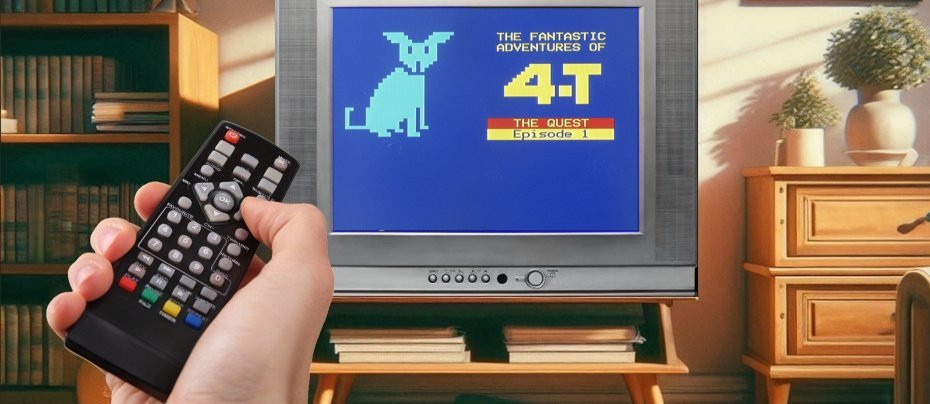
Is This the Golden Age of Television?
A Personal View
by John Winterson Richards
The very notion of a "Golden Age" implies nostalgia. It is therefore perhaps a little contradictory to suggest that there are such things and that the proof is that we are living in one right now. Yet many respected critics and scholars claim that there is a "Golden Age of Television" and this is it.
Before examining that claim, it is necessary to go back a bit. There is nothing new about the expression "The Golden Age of Television." It has long been applied to the pioneering years of mass broadcasting in the United States from the late 1940s through the 1950s. It was during this period that most of the basic formats, structures, tropes, and techniques of television production that remain with us to this day were developed. Of course, there have also been major changes since then, but the changes themselves were reactions to what was established during this formative period, so that the influence of "The Golden Age" can be seen even in its rejection.

The United States has always set the standard in television, and continues to do so to this day. American dominance of the major online platforms, together with the brute fact that English is the default language of the internet, will continue to ensure that this will remain the case, at least for the next few years. The only real threats to this are the self generated implosion of the American entertainment media Industry and the possibility that a foreign competitor might start producing superior content in English. Either or both could happen. Until then, any global "Golden Age" must be an American "Golden Age," and vice versa.
This is not to say that there are not separate national "Golden Ages" as well. For example, there is a definite "Golden Age of British Television" which began in the early 1960s and seemed to peter out in the mid 1980s. American cultural domination of the English speaking world since then, not least through television, is beyond dispute. Other nations have their own "Golden Ages," but their global impact has been necessarily limited up to this point, especially if English is not their principal language of production. Individual non-American shows might have enormous impact, but that impact is still judged by the American market.
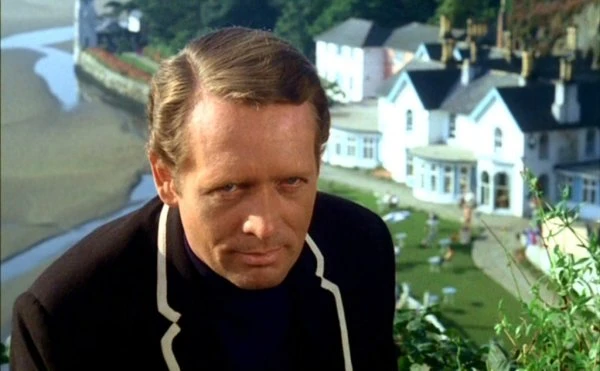
Before going further, we need to be clear about what might define a "Golden Age." This is not easy, but perhaps we can begin by saying this much, that it is about more than the production of a number of good shows. You can make a list of such shows from any decade or period in the eighty-odd year history of television as a mass medium.
Nor is it about innovation, which is a constant in what is essentially a progressive medium. Technology is improving all the time. So are writing and directing techniques, even if it is sometimes depressing how much seems to be forgotten very quickly in this regard and has to be rediscovered.
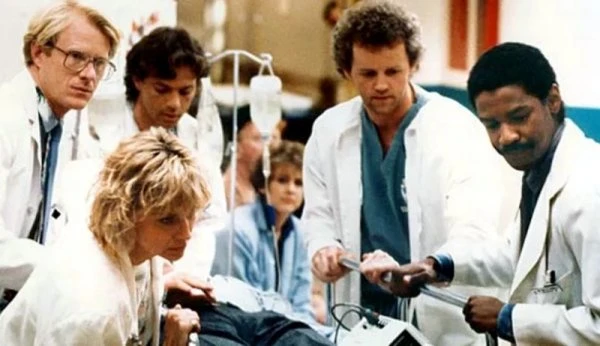
It could be argued that the most revolutionary period in scripted American comedy and drama lasted from the early 1970s until the 1990s when shows like 'M*A*S*H,' 'Hill Street Blues,' 'St Elsewhere,' and 'Northern Exposure ' successfully blurred the boundaries between the two, changing everything. Yet those decades are not on the whole remembered fondly for the high quality of their television output, and very few have argued that they were a "Golden Age."
This leads to the conclusion that a "Golden Age" is defined not by the number of outstanding shows, or even by the production of innovative shows, so much as by a generally higher standard overall. This higher standard must be more than the improvement that we can expect from technological advancement. It must be a widespread artistic movement, the equivalent of the Renaissance.
This rather undermines the strongest argument in favour of this being the "Golden Age" now, which is that the huge increase in the number of platforms, and therefore in the number of scripted shows, means that there is a greater chance of better and innovative shows being produced.
In principle, that should be true. It is undoubtedly the case that more platforms mean more shows, and the increased demand for content means that many shows are being produced that would not have been produced otherwise. Some of these marginal productions are marginal because they are daring and innovative. A few succeed brilliantly as a result. Most do not. It turns out that there was a reason why they were marginal.
The vast majority of the increased number of shows are very mediocre. Executives tend to favour the false illusion of safety offered by an established brand name. There is no sign of a general increase in standards beyond what should be expected of ongoing technological and technical advancement. As a general rule, there is rarely much of a positive relationship between quantity and quality, and frequently there is a definite negative or inverse relationship between them.
No matter. We should still be grateful for such truly great shows that would almost certainly never have been produced before the growth in the number of platforms that we now have as a result of it, even if they are not numerous. They are enough in themselves to make the whole thing worthwhile. They are simply not enough in themselves to justify talk of a "Golden Age."
Moreover, the multiplicity of platforms has not altered the fact that most shows are being produced by people with the same cultural and educational backgrounds, and therefore the same political and social attitudes, as before. For all the loud talk of "diversity," there is very little in practice.
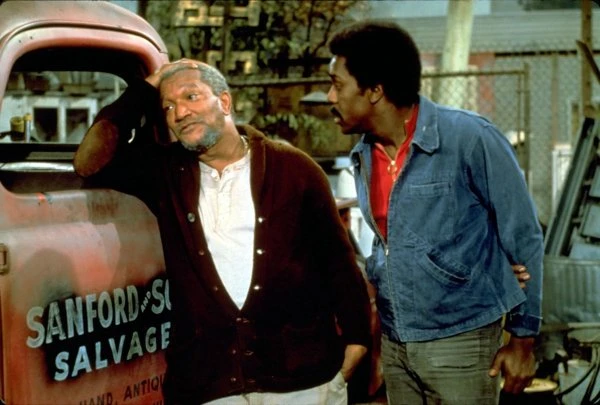
There is, if anything, less diversity of ideas and perspectives at the moment, as many viewers are put off by what they perceive as the growing influence of "political correctness" or "wokery" throughout the Industry. What one feels about that is probably a reflection of one's own politics, and beyond the scope of this essay, but it is no longer possible to deny that the "culture wars" are real. Like it or not, the fact that they are an issue raises questions of artistic freedom and of whether culture is represented accurately in the entertainment media. It may have significant practical consequences as concerns grow. Individual platforms are so far not bothered, still seeing similar platforms with similar attitudes as their main competitors. In fact the real competition is other forms of entertainment altogether - including switching off television in order to watch old clips on 'YouTube,' or perhaps the growing number of videos there complaining about how bad television now is.
Yet it is not bad - or at least most of it is not bad. While it is not difficult to find real stinkers, most recent output is watchable. However, excellence, by definition, is much harder to find.
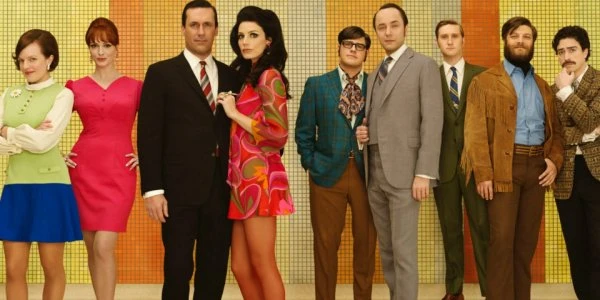
Advocates of this being the "Golden Age of Television" tend to cite the same names, usually including 'Buffy the Vampire Slayer,' 'The Sopranos,' 'The Wire,' 'Deadwood,' 'Mad Men,' and the early seasons at least of 'Game of Thrones.' Great shows all, no question, but, again, it takes more than a list of great shows to make a "Golden Age" and similar lists could be made for any previous period - as your reviewer, a compulsive lister, would be all too happy to demonstrate.
Moreover, taking even that list at face value, the first two actually started in the late 1990s begging the question when this alleged "Golden Age" actually began. Most proponents of the theory try to keep it simple by saying a show had to be running in the 21st Century to qualify. That seems a long time, and there are some who maintain it began even earlier. In terms of influence a strong case can certainly be made for including 'Homicide: Life on the Street,' 'Star Trek: Deep Space Nine,' 'Babylon 5,' 'Murder One,' and, for its significance to the way women are presented, 'Xena Warrior Princess.' If you start down that route, when is the cut off point? You could end up going all the way back to 'M*A*S*H' in the 1970s.
Then there is the question of a possible cut off point the other end. The list given is biased towards the first decade of the 21st Century. A number of truly great shows, like 'Chernobyl,' were produced in the 2010s but few would deny that the list for the Noughties is stronger.

The multiplicity of platforms means "event television" is largely a thing of the past, at least for scripted television. 'Game of Thrones' is the closest we have seen to it recently (and perhaps, in the UK at least, 'Line of Duty' and 'The Bodyguard,') but, even allowing for the record breaking piracy, the structure of television now means that its actual domestic viewing figures on initial broadcast were tiny by historical standards. Even if recent shows were better, the claim that they were a "Golden Age" would be thin if few were watching them.

So if there were a "Golden Age" of up to two decades in the 21st Century, it could be argued that it ran from the mid 1990s to about 2015, when 'Game of Thrones' began to decline, rather than from the turn of the Millennium to the present day.
Yet it is perhaps unfair to judge more recent shows before we have any idea of how history will view them. Some great names in their day have aged very badly. At the same time, while it is extremely unusual, especially in a mass medium like television, for something that was not a popular hit at first to become acknowledged retrospectively as a classic, it does happen.
Subject to that very important caution, what follows is a brief overview of the state of scripted drama and comedy across the various platforms since 2015. It can fairly be summed up as a quest on the part of platforms and producers for "The Next 'Game of Thrones'" with, so far, no sign of that particular Holy Grail.
A great many intriguing, quirky, original, and enjoyable shows are being or have been produced. If they maintain their standards to date, one can imagine at least two current Amazon shows, 'The Expanse' and 'The Boys,' still being well regarded in a few years time, but both are definite "cult" items that have not enjoyed huge ratings. Amazon's rivals Netflix have pitched 'The Witcher' quite deliberately, and indeed explicitly, as "The Next 'Game of Thrones,'" with a full ranking film star, Henry Cavill, in the lead. At the time of writing, the first season has shown promise, no more than that.

Amazon and Netflix are mentioned first because it is difficult to deny that they are where the action now is. Yet, as subscriber platforms, there is necessarily a limit to their cultural influence. There is also the danger that, having invested heavily in programming to build their subscription lists, they may be tempted to ease off. There are signs that they are getting lazy like the rest of Hollywood, with more reliance on familiar names, through remakes, "reboots," sequels, "spin offs," adaptations, etc, and less of the commitment to originality that built their empires in the first place. This is now a common theme all over the Industry.
The power of the franchise continues to dominate television as it does cinema - with the same depressing results. Long term fans of the franchises themselves tend to be the most depressed of all. Beloved brand names like 'Star Trek' and 'Star Wars' are being used quite openly as cash cows in a ruthless textbook application of the Boston Consulting Group Matrix, as taught in Business Schools not Film Schools. Every penny will be squeezed out of expensive intellectual properties by people who care absolutely nothing about their traditions.
There may be an interesting exception in a very unexpected place. 'Star Wars' having trashed itself in its original medium of cinema, there may be a New Hope - so to speak - in the form of a television "spin off" that demonstrates a real understanding of what made the original trilogy work. 'The Mandalorian' is made by two people who appear to love what they are doing, Dave Filoni, a long time 'Star Wars' writer, and Jon Favreau, one of the most consistently interesting actors and directors in the business.
The bad news is that the intellectual property remains in the hands of the Disney corporation. Once a byword for originality and artistry, Disney is now the epitome of the soulless corporatist approach. Their greedy exploitation of their franchise rights actually makes one nostalgic for the much maligned conglomerates of yesteryear who at least seemed to take some pleasure from the fact that they suddenly found themselves in the entertainment business. The bottom line was still all that mattered, but they accepted that there were things they did not understand and left them to people who did. Disney, by contrast, know exactly what they are doing. They control Pixar, Marvel Studios, The Muppet Studios, and Lucasfilm, among many other properties, and have systematically sucked out everything that made them interesting and unique. They seem to give no thought to developing future franchises. Their strategy is simply to buy more when the old ones run out. It is the entertainment media equivalent of strip mining.
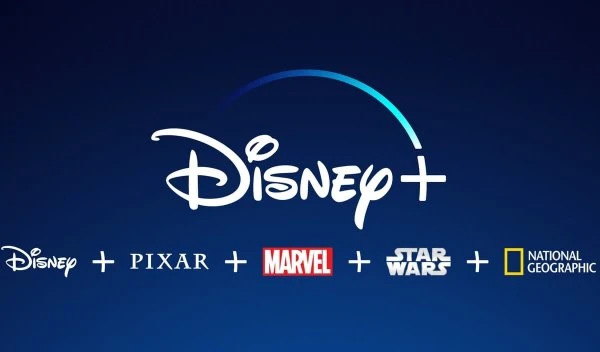
Disney is now taking on Amazon and Netflix directly with its new subscription platform, Disney Plus. To that end they have taken the commercially very brave decision to recall most of their content from other platforms in order to make it available exclusively to Disney Plus.
So we are in the early stages of a War of the Three Kings between Amazon Prime, Netflix, and Disney Plus. In the medium term, this may be to the benefit of the viewer, because Amazon and Netflix will have to postpone any thoughts they might have had of cutting back on new content if they are to compete with Disney. In the longer term, however, we may be looking at a 'Highlander' situation - 'There can be only one."
That would not be good news for the viewer, and, if it comes to pass, anyone who cares about original and intelligent television must hope that the one is not Disney. Happily, the very reason that is undesirable makes it unlikely. Disney's reliance on established franchises, which it has run into the ground, rather than on innovation, place it at a disadvantage in a market with a voracious appetite for new content.
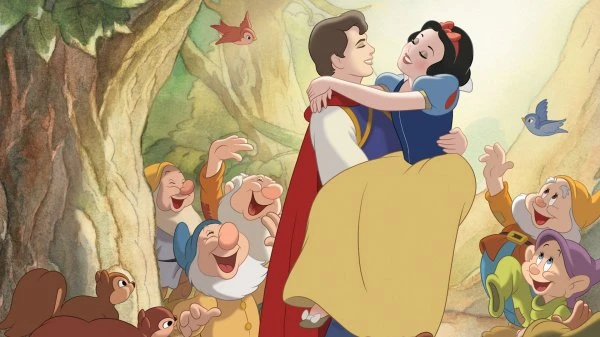
Disney Plus have signed up an impressive number of subscribers, mainly because the video library of old Disney classics is useful for keeping children entertained, and some of their other franchises still have loyalists, in spite of the way the Mouse House has mismanaged them. However, subscribers are increasingly mobile and more inclined to jump ship when they are not seeing enough interesting new content. The small-p politics of the various franchises, and possibly the big-P politics of the "culture wars," may also count against Disney. A conglomerate cannot afford to ignore and insult crucial segments of its target markets as Disney does.
Amazon and Netflix are not perfect, but they are more open to originality and innovation, and they do not have Disney's record of ruining franchises started by more talented people.
So where are the big networks in all this? Nowhere really. When did a major American network last produce a show that made this reviewer eager to see the next episode? Has there been anything since 'Person of Interest'? Just looking at the list here for a moment... Oh, how sweet, dear old 'NCIS' is still going...
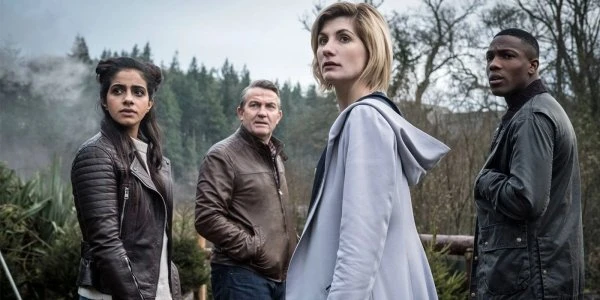
The BBC has had something of a minor revival in drama after a quarter of a century of decline, even if few of the fair number of creditable shows it has produced over the last decade have really sold well overseas and it is difficult to think of one that looks likely to be remembered as a classic in a few years time. It also has to be noted that its flagship franchise in the global marketplace, 'Doctor Who,' has been the object of criticism similar to that generally levelled at other old established franchises by long term fans. 'Sherlock' showed potential, but rather ran itself into the ground.
That is a common theme across the board in the last couple of decades. Although the big networks have always lived and died by the ratings, they employed at least some people who understood that a show often takes time to find its groove and were willing to stick their necks out occasionally for projects in which they had particular confidence. A lot of now classic shows thus got second chances they would not get today. The number of platforms has increased the pressure on a show to make an immediate impact to attract viewers not only to the show but to the platform. As a result, the 21st Century has seen a lot of shows like 'Prison Break' and 'Heroes' - and 'Sherlock' - which started very strongly only to fail to maintain their momentum.
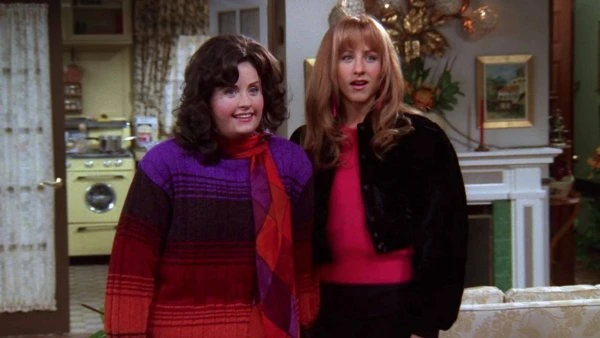
Scripted comedy looks in a very poor state on both sides of the Atlantic. There are some gently amusing shows, but all edge has been lost. The business is paralysed by a fear of "offending" people who have no sense of humour and probably do not watch much comedy in the first place. The last global phenomenon in comedy was 'The Big Bang Theory,' a pleasant show in its prime but hardly epoch making. A brief revival of 'Roseanne' stirred things up - ultimately not in a good way - rather highlighting the lack of more exciting new stuff.
Rewatching respected comedies made only a few years ago, like '30 Rock,' one is struck by how much in them would not be "allowed" today. Even deliberately subversive shows like 'South Park' and 'Family Guy' are frank about pulling in their horns. Medieval Kings had Court Jesters whose licensed mockery prevented those with power from getting too full of themselves. That tradition died a few years ago. There are some people you can still mock and get cheered for it. There are others at whom you must never laugh - and they may be the most powerful of all.
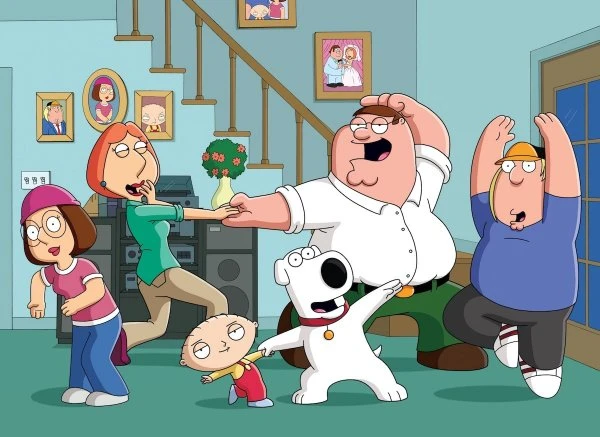
None of this supports the notion that we are currently in a "Golden Age." If there was such a "Golden Age" earlier in the Century, it must be defined so broadly as to make the whole concept meaningless.
However, if we are not living in a "Golden Age," we may be going through something even better - an exciting transitional phase.
The old networks are dying and we can expect a rationalisation of the large number of alternative platforms. We can also expect most of the big franchises to be drained of the last drop of their blood by the likes of Disney before being dumped, only for their owners to realise they have nothing to replace them.
Then the platforms that have invested in originality and innovation, that have not relied on the lazy exploitation of franchises built by others, that are both culturally and intellectually diverse, and that respect their customers, will be the ones that survive - and flourish.
The rest, possibly including some very big names, will go to the wall. Good riddance. The process of change is often painful, but it is both necessary and unavoidable. Getting rid of the complacent Establishment that still dominates the entertainment media Industry will open up space for more new players.
There are so many talented content providers on the internet now. Most never get the breaks they deserve. That might be about to change. Sometimes it takes a forest fire to burn up all the dead wood and leave room for healthy young growth.
Perhaps the "Golden Age" lies ahead of us.
Or perhaps we are looking at all this from the wrong angle. After all, we are viewers not producers. If this is not the "Golden Age of Television Production," it could at least be argued that the multiplicity of platforms makes this as the "Golden Age of Television Viewing" as we have not only access to a broader range of new productions but also greater access to the archives of past programming.
It is certainly true that access is wider than most could even have imagined twenty years ago and from the viewer's point of view this is a good thing. The question is where we go from here. Will access continue to expand? There is no reason to assume that it will. If other providers choose to follow the Disney Plus model, we may well end up with a large number of subscription services, each sitting on their own archive. This is again why we should hope that Disney Plus does not prevail in its existential struggle with Netflix and Amazon.
It is implicit in the notion of a "Golden Age" that one looks back at it with nostalgia precisely because things have declined since then. So if this is indeed a "Golden Age of Television Viewing" it may be because it means things are about to get worse.
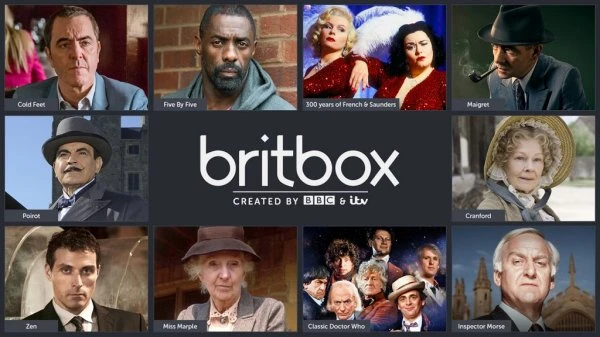
Whatever happened to anti-monopoly and restrictive practices legislation? Or is it time to take a more fundamental look at international intellectual property law? It needs to protect content providers and allow them a decent income from their risky investments without allowing them to sit on cultural treasures that should belong to the world. Without going so far as the anarchic suggestions of some "Pirate Parties," which would discourage such investments, perhaps a new Berne Convention might see ways to mitigate traditional copyright law with a "use it or lose it" principle to encourage providers to make their content widely available.
It is difficult to think of any measure that would do more to stimulate a future "Golden Age of Television Viewing."
Yet if we are looking at all this as viewers, we need to be honest with ourselves and admit that, as viewers, we cannot be objective. All this began with the assertion that the concept of a "Golden Age" is necessarily rooted in nostalgia, and nostalgia is, like all emotions, subjective.
The truth is that we all have our own "Golden Ages." They are the times in our own lives when were happiest and they are different for each individual. We tend to associate the television we watched during those periods with that general feeling of happiness, and so we may remember it being better than it actually was. This is especially true of memories of childhood and childhood television. It must also be said that some may overrate periods of viewing for directly the opposite reason, that television provided a refuge during times that were unpleasant in other respects. Either way, we all have our particular "Golden Ages of Television Viewing."

These are completely independent of any question of whether there is a more objective "Golden Age of Television Production." As a wise man pointed out when discussing this essay, for some people, "today is the nostalgic era of the future."
For them, in that sense at least, this is indeed a "Golden of Television Viewing." For anyone else, the jury is still out and will be for some time.
Review: John Winterson Richards
John Winterson Richards is the author of the 'Xenophobe's Guide to the Welsh' and the 'Bluffer's Guide to Small Business,' both of which have been reprinted more than twenty times in English and translated into several other languages. He was editor of the latest Bluffer's Guide to Management and, as a freelance writer, has had over 500 commissioned articles published.
He is also the author of ‘How to Build Your Own Pyramid: A Practical Guide to Organisational Structures' and co-author of 'The Context of Christ: the History and Politics of Rome and Judea, 100 BC - 33 AD,' as well as the author of several novels under the name Charles Cromwell, all of which can be downloaded from Amazon. John has also written over 100 reviews for Television Heaven.
John's Website can be found here: John Winterson Richards
Published on September 17th, 2021. Written by John Winterson Richards for Television Heaven.


